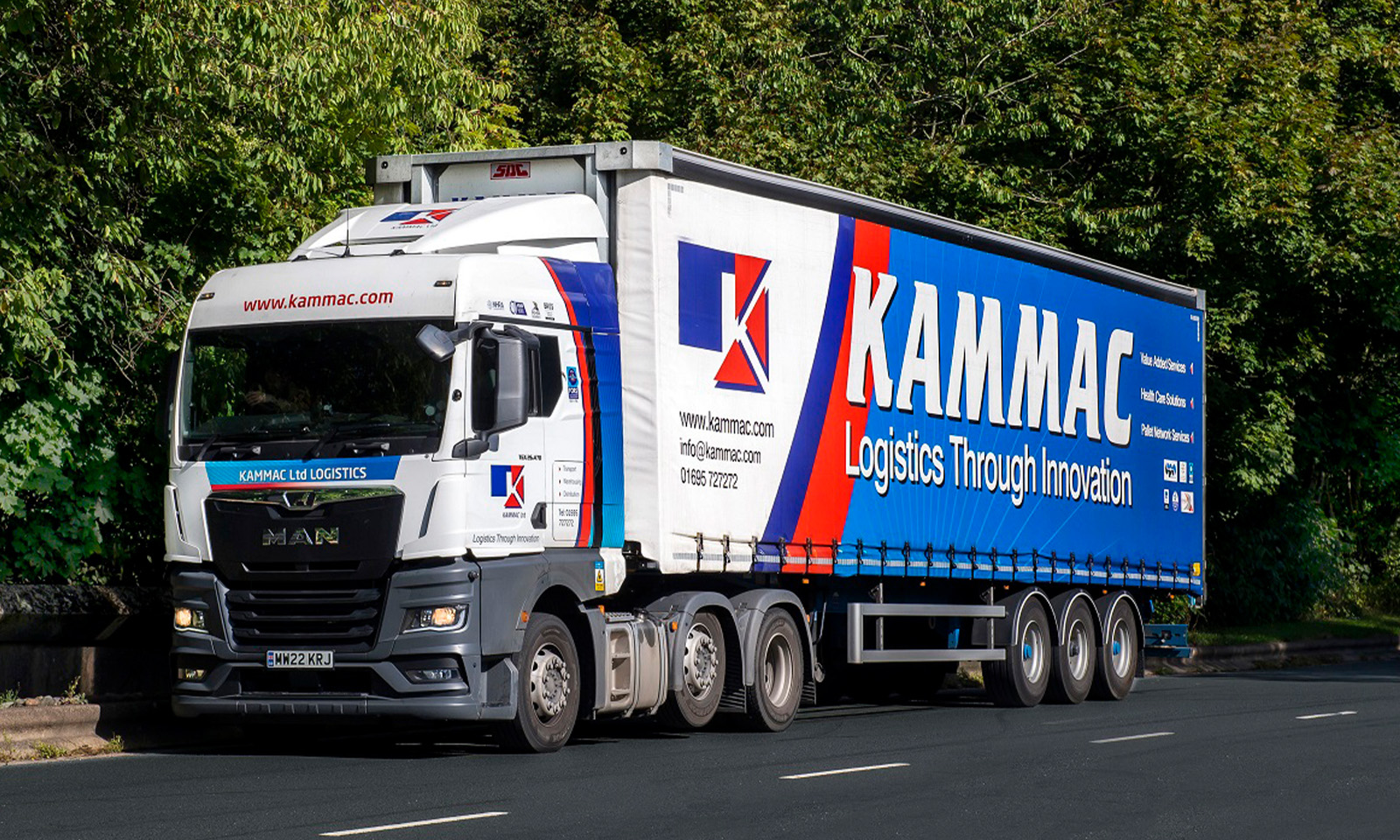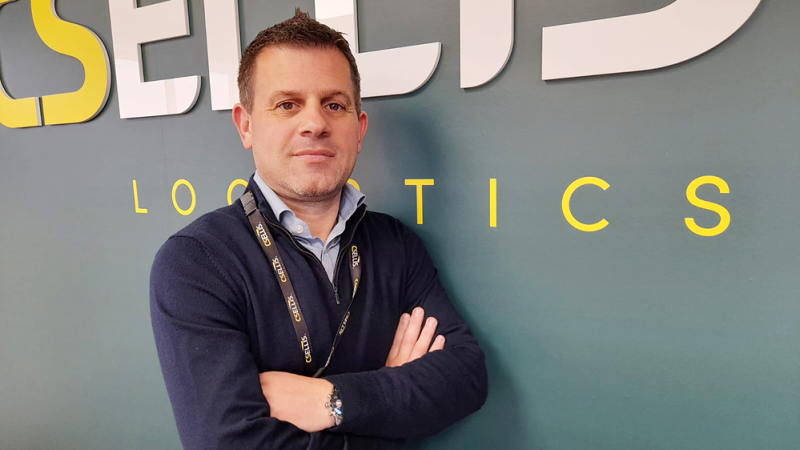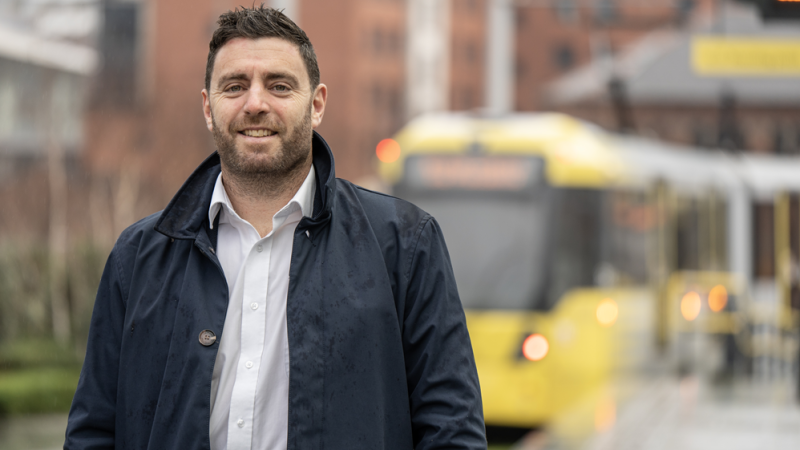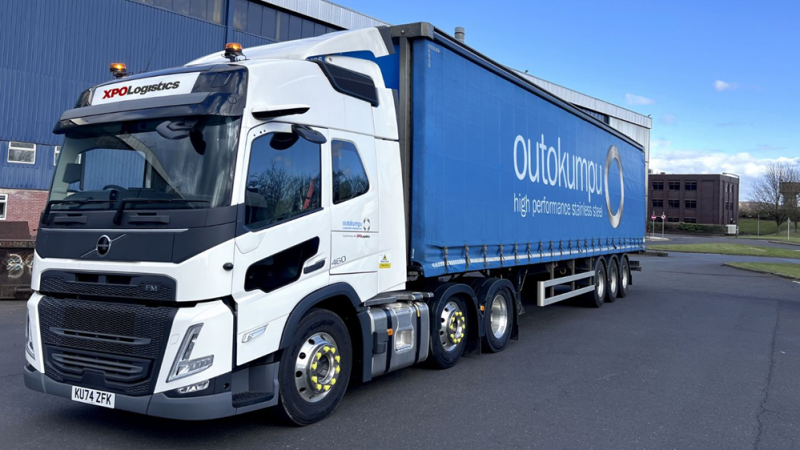Since it was founded in 1985, the third-party logistics company Kammac has been owned and run by Paul Kamel. Even today, members of Paul Kamel’s family are involved in its day-to-day running, such as Laura Olson, the firm’s Executive Director, and Craig Olson, its Executive Director dealing with property. Together, they form a formidable team with Ged Carabini, the company’s COO who oversees the company’s general sales activity through the lens of Kammac’s unique perspective.
“I look after anything that moves and shakes – transport, people, our next best opportunities, training, systems, they all fall under my remit,” Carabini says. “We operate our business slightly differently from other logistics companies, with a different focus. We are not just about delivering a pallet from A to B or storing a pallet for a certain amount of time. We care about how suitable a site is for complementing our physical efforts. We drive ourselves not just by opportunity, but by how the placement of property can further opportunities for both parties. You would think that is obvious, but that perspective is not often used in the logistics industry. We do not leave any stone unturned.”
That is the strength that Kammac sells on. If Kammac says it will do something, it does it right the first time.
“Nobody makes a profit trying two or three times. People are not paying for inefficiency,” Carabini tells us. “They want an expert.”
Kammac is focused on providing the best service, taking first-class measures across the board.
“Kammac has a can-do attitude. Nobody here ever says ‘I can’t do that’, or ‘I’ll ring them back tomorrow’,” Carabini explains. “If we say we will ring you back it will be in five minutes at the latest.”
The Logistics of a Pandemic
Of course, if you talk to anyone about logistics these days it will not be long before the conversation turns to the impact of the Covid-19 pandemic. Where the pandemic saw some business sectors close down overnight, if anything the logistics sector went into overdrive.
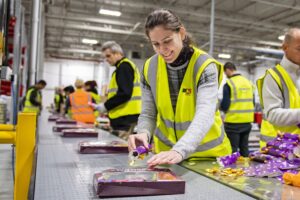 “Covid was as big a challenge as anyone could face physically and mentally, but people needed feeding and PPE and e-commerce was booming,” Carabini points out. “We were lucky that we operated in ten different sectors, and all of them were busy. We made a lot of strong business relationships during that period.”
“Covid was as big a challenge as anyone could face physically and mentally, but people needed feeding and PPE and e-commerce was booming,” Carabini points out. “We were lucky that we operated in ten different sectors, and all of them were busy. We made a lot of strong business relationships during that period.”
Carabini prides himself on the fact that he, and many of his staff, went through the entire pandemic without taking a single day off. But while the days of lockdown are behind us, there are still more challenges on the horizon.
“Obviously, increasing fuel rates are a problem, but our relationships with clients help,” says Carabini. “Where possible we reduce our rates. Everyone is looking at how to save a penny. We are not flamboyant in what we do. We do not need to be to deliver first-time success.”
Bringing Drivers Home
As ever, Kammac negotiates these challenges in its path through a strategy of investment in people and systems, while listening to and communicating with its staff. Indeed, the pandemic saw the company’s relationships with some of its workers undergo a fundamental change.
“Safety is paramount, and compliance is key, as a lot of our business sectors are compliance driven. During Covid we achieved the BRC double A grade standard, so we came out of Covid much stronger than we went in,” Carabini emphasises. “We made a lot of investment during that period. When we went into Covid 84% of our drivers were agency drivers. When we came out of Covid 89% of our drivers were directly employed.”
If there was one thing that was in high demand during the pandemic, it was delivery drivers. Changing from an agency to a direct-hire model during that period was no small feat.
“We reviewed our offering. We had to be realistic. We started Covid with two people in our HR recruitment division, and ended with nine,” Carabini recalls. “We battened down the hatches and made it happen, as usual, right first time. We made investments in people, and brought in new systems including welfare systems, making it easier for people to book time off. It was just about making sure we were better at everything we could be.”
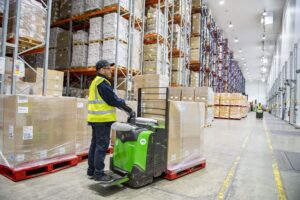 To find the best talent, Kammac has sought out new and better recruitment partners, while also reaching out through LinkedIn and other social media platforms to reach new talent.
To find the best talent, Kammac has sought out new and better recruitment partners, while also reaching out through LinkedIn and other social media platforms to reach new talent.
“To make sure that recruitment push remained consistent, we also asked how we could invest in our people. We identified necessary training and had internal reviews. Our whole HR policy changed during Covid,” Carabini says. “We introduced easier ways of clocking in and out, better communication, and a chronicle of the CSR work we do- we are a very charitable business, and that is attractive to recruits.”
As well as the company’s charitable efforts, Kammac is also deeply involved in building its sustainability measures.
“Kammac has recently introduced solar panels and green warehousing, starting with one or two sites,” Carabini points out. “We plan to ensure our fleet reaches up to 95% reductions in carbon by switching to HVO from diesel. Our new employees are inducted into that mindset, and most importantly, our clients are on board.”
Those measures will become even more important as the company grows.
“We are on a growth drive. We started with 80,000 square feet. We are now at 4.4 million square feet, and it increases weekly and monthly,” Carabini says. “We want to hit 7.2 million square feet before January 2025. I do not see growth as a problem for the next six-to-ten years. We have recently opened a brand-new site in Burton-on-Trent and have plans to open an additional site in Sheffield soon.”
Kammac is on a growth journey, but Carabini also insists that it is on a learning curve alongside that.
“We are doing things we did not even consider three or four years ago. The investment from the owners of the business is there to make sure it happens,” Carabini tells us.
